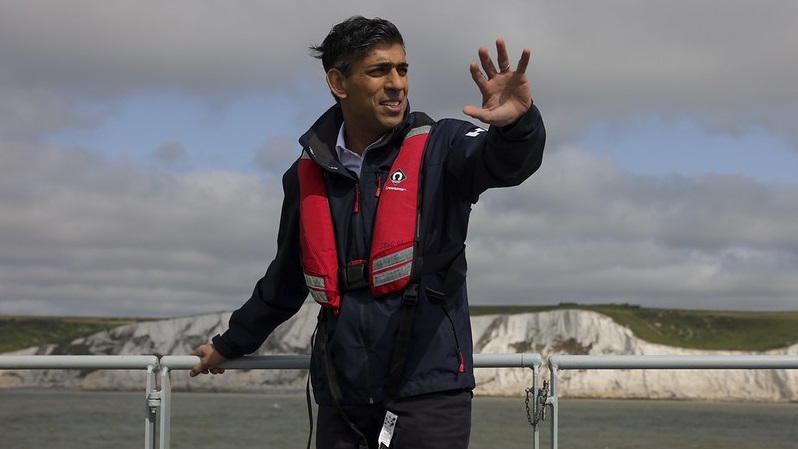The UK government’s official advisers say it is failing on climate at home and abroad, as it cuts climate programmes
The UK has lost its position as a global leader on climate action and is not doing enough to meet its mid-century net zero target, the country’s climate advisers said today.
Britain in 2019 became the first member of the Group of Seven wealthy nations to set a target to achieve net zero emissions by 2050, requiring major changes in the way Britons travel, eat and use electricity.
But strategies in place are unlikely to deliver the required emission cuts and last year’s announcements on new fossil fuel projects have tarnished Britain’s reputation as a climate leader, an annual progress report by the Climate Change Committee (CCC) said on Wednesday.
“The UK has lost its clear global leadership position on climate action,” it said. “We have backtracked on fossil fuel commitments, with the consenting of a new coal mine and support for new UK oil and gas production.”
US ‘still on the fence’ as nations debate global shipping emission tax
The impact of climate change is already evident in Britain, which experienced record temperatures over 40C (104F) last year.
“There is a worrying hesitancy by ministers to lead the country to the next stage of net zero commitments,” CCC Chairman John Gummer said.
Over the last year, the leadership of the UK has passed from Boris Johnson to Liz Truss briefly before the current prime minister Rishi Sunak took over in October. All are from the ruling Conservative Party and there were no public elections held.
The CCC, set up as an independent adviser on climate action to the government, found Britain had fallen behind in areas including improving energy efficiency in buildings, rolling out heat pumps, curbing emissions from industry and increasing the rate of tree planting, which must double by 2025.
Public banks agree to check investments against countries’ climate plans
Internationally, it said the UK could move past general statements of support for the Bridgetown agenda and back specific proposals to reform the global finance system so that it works for the developing world and climate.
It added that the UK had used its aid budget to support refugees in the UK, “creating pressure” on international climate spending.
“Even if they are compensated for in future years, temporary cuts cause disruption to programmes and can make outcomes less effective,” it said. The UK froze “non-essential” new aid spending last July.
Last year’s CCC progress report also flagged Britain’s lack of action, saying the
Read More

